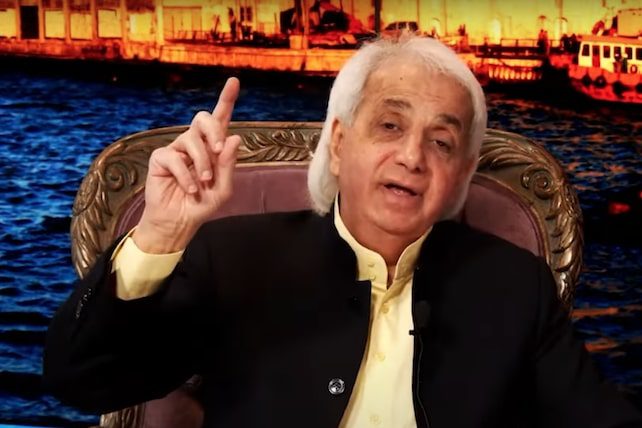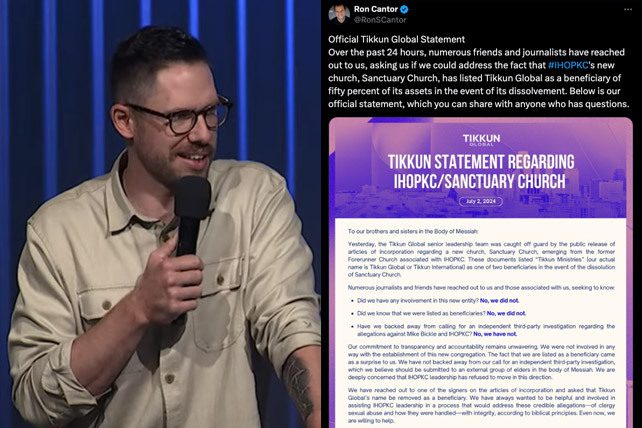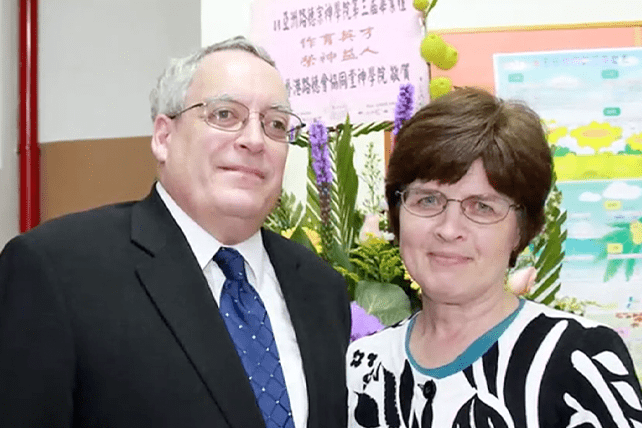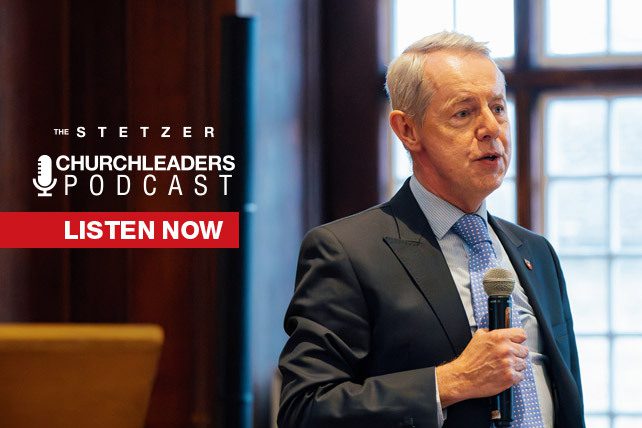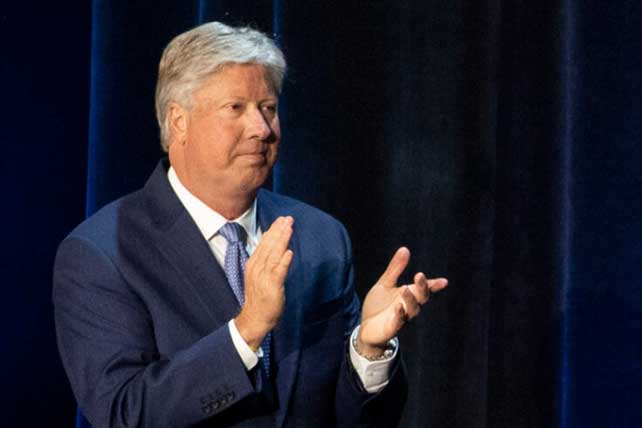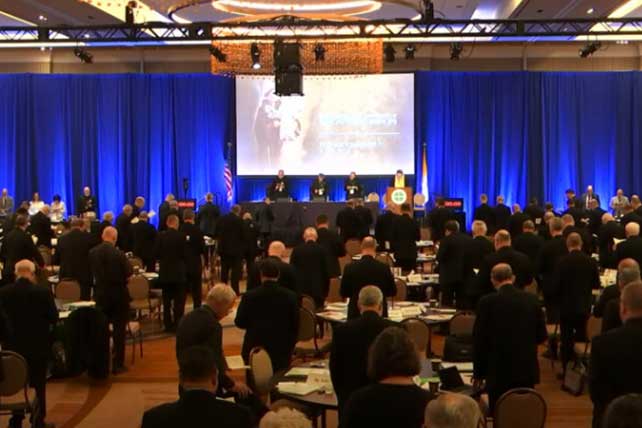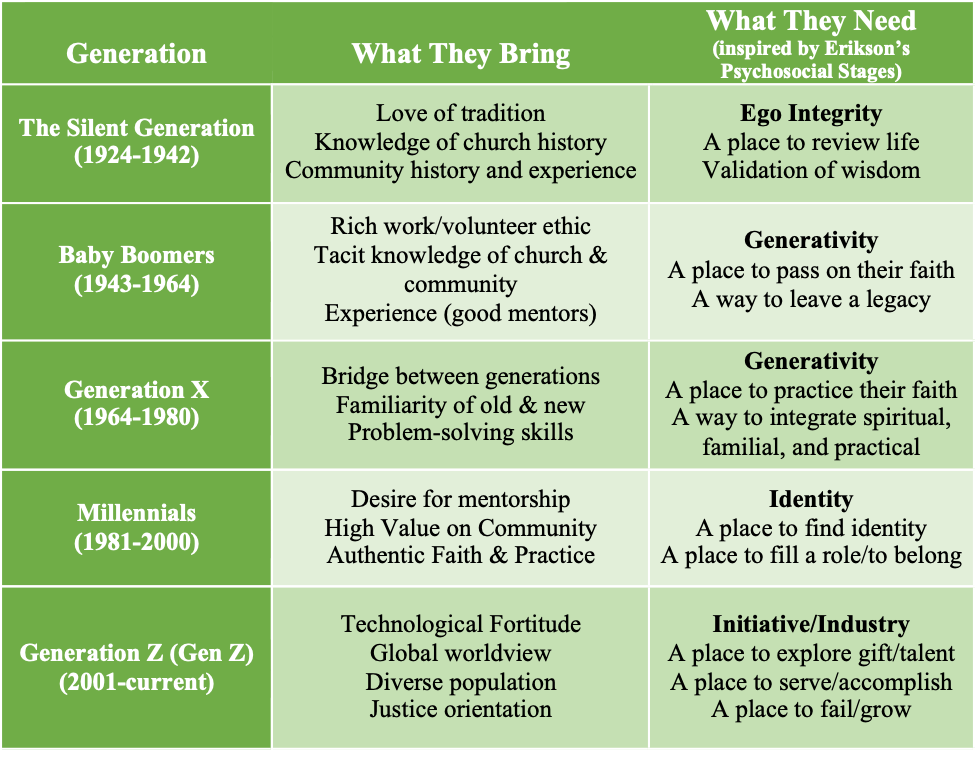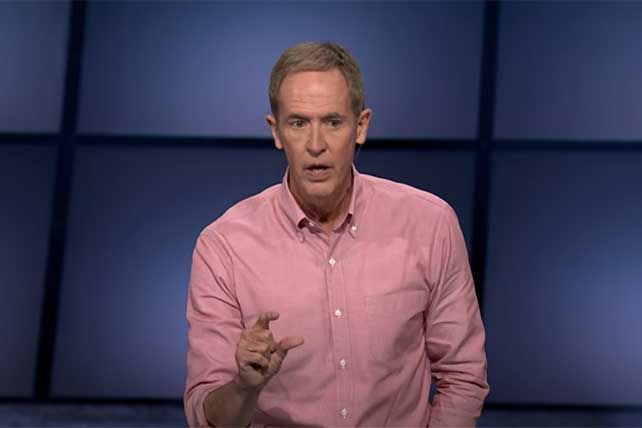EPISODE 474-FINAL-Justyn Terry.mp3: this mp3 audio file was automatically transcribed by Sonix with the best speech-to-text algorithms. This transcript may contain errors.
Voice Over:
Welcome to the Stetzer Church Leaders Podcast, conversations with today’s top ministry leaders to help you lead better every day. And now, here are your hosts, Ed Stetzer and Daniel Yang.
Daniel Yang:
Welcome to the Stetzer Church Leaders Podcast, where we’re helping Christian leaders navigate and lead through the cultural issues of our day. My name is Daniel Yang, national director of Churches of Welcome at World Relief. And today we’re talking to Reverend Doctor Justin Terry. Justin’s device, principal and academic dean at the Wycliffe Hall at Oxford University. He previously served as principal of Trinity School for Ministry in Pittsburgh and vicar of Saint Helen’s Church in West London. Justin is the author of the Five Phases of Leadership in overview for Christian leaders and listeners who purchased Justin’s book by the end of August 2024, can receive a 30% discount in free international shipping. Check out the show notes for the link for the book and for the discount code. Now let’s go to Ed Stetzer, editor in chief of Outreach Magazine and the dean of the Talbot School of Theology.
Ed Stetzer:
Okay, well, Justin, super excited to have this conversation. I have told you, but I don’t know that I’ve told everybody that I there was actually two podcast guests who helped me think through my change of job. One of them was Arthur Brooks, and he. He had written this, this article that later he became a book and he talked about, you know, leading in the later half. And then I was actually reading your book and, again, the five Phases of Leadership. I was reading your book, uh, on the plane and part of when it talked about, I just found the transition out part to be particularly helpful and helped me align some of those things. So again, I don’t want to start at the last part, but there are five phases of leadership in your book. How about telling us a little bit about those?
Justyn Terry:
Well, thank you very much. And to say to start with, I’m very glad this book’s proving helpful. That is the whole aim of the exercise. So the book is simply a chance to reflect on leadership and notice that I think there are typically five phases that leaders and particularly Christian leaders, find themselves doing. You’ve got to firstly establish trust. When you’re in a new role of leadership, you can’t do anything until you’ve got trust. You’ve got to be cultivating leaders all the time, spotting people who can lead, helping them to grow in their leadership. Then once you’ve got like a leadership team emerging, you want to be able to start working on the vision or renewing the vision if there’s already one in place. Can you say where you believe God is calling you to be in 5 to 10 years time? And with that you need like a purpose and the values, etc. but then the fourth phase is implementing the plans, and you’ve got to actually do things in order for a vision to come about. It doesn’t just sprout because you announced it. And so that is a phase which I try to break down a little bit and say, how do you actually implement a plan? You need to put a plan together and then you need to actually manage people and money and time. And of course, at some point you need to know, okay, my job is done here. There’s this transitioning out phase. And how do you know when that is? At what point is it right to say, you know, I think my job is done. And then how do you bring things to a tidy close? Get ready for your transitioning out and get it ready for the next person coming in. And then how do you know where you’re supposed to go next is. And then, of course, the whole cycle begins again. Back to establishing trust code, wedding leaders, finding the vision, implementing plans, and again transitioning out.
Ed Stetzer:
Yeah. And I think that again, I mentioned for me that phase five was just I think just in the Lord’s timing, it was super helpful for me on that plane. Um, but let’s go back even to that beginning, because I do think there are some well, you know, obviously people notice you’re British. Uh, there are some cultural differences. Americans, I think, like to go fast and Brits tend to go slower. And I think that we probably see more problems with going fast and trust in maybe American context. I mean, not that there aren’t here to you’ve seen that you’ve led through some of that. So so how what are some ways and how long are you in the establishing trust phase?
Justyn Terry:
That’s a great question. And I have to say, having myself lived in Pittsburgh and in the States for 11 years, I like going fast. I like the American culture. I like the can do. And we’re going to make it happen quick and easy. I find it truly attractive. But you asked a question about how do you get a sense of the timing, and I’m sure it will vary a bit, but if you want me to put a time on it, I would say to my own surprise, it’s about three years. Is it okay? That would be, I would say, typically. And again, I’m not trying to claim any sort of statistical background to that. But certainly the first couple of years you’re still new. Yeah. And I think something around the end of your third year, you’ve kind of been around the cycle three times and people begin to think, you know, what, he or she, they’re the leader. Yeah. And so from that point you’ve got that trust, you’ve got relationships, and then you can really begin to move a bit faster. But I think the thing that I found helpful is just the advice you can’t do much when you first arrive. Well, that’s just frankly frustrating, right? What what is it you are doing when you first arrive? If you’re not kind of making any changes and you are building trust, you’re getting to know people. You’re getting to know their lives and stories and seeing, oh, you know what? This person might be a leader and how do they fit, how do you relate to them? And that is all building, building, building. So you’re not doing nothing waiting for time to pass, right? You’re actually establishing the trust that will enable the next thing to happen.
Ed Stetzer:
Yeah. And it’s interesting because, you know, I had when I was at Wheaton, I was there for seven years. I had, I think, established that sense of trust, but also kind of moved through some of the other phases. I think I took Wheaton as, uh, far as I could take it structurally and culturally. And more interestingly, by the time this podcast comes out, they will have renamed the school. It’s now a divinity school. Some of the process that we had begun, but I think somebody else needed to maybe take it across the finish line. Um, but now I’m in the beginning of the phase at Talbot, and, you know, it’s, you know, we’ve had some challenges, some financial challenges, and sometimes a crisis, as you know, helps accelerate the opportunity for trust. But it also is a test of whether people will trust you, what values will you evidence and more. So I mean, is it fair to say that because you said three years, which I actually I find that resonates with me, particularly for pastors. And you’re training pastors and ordinands here. Um, but is it fair to say that in more crisis situations you have to act sooner with more and find the trust and sometimes with more settled situation, it takes a longer time to get there.
Justyn Terry:
That’s a great point. I think that may well be the case, but again, obviously circumstances do change and do vary very substantially. So what I think I’d say to that is when I took over the leadership of the seminary in Pittsburgh, well, I’d only started, I think, you know, July, August, and then we had a crisis in October. So we didn’t have the convenient three years to get established. Now, what I will say in that situation, I’d already been on the faculty for three years, so that was enormously helpful. I wasn’t getting to know people on the tutorial on the sorry. On the faculty side tutorial has a strange British word just delete that from your memory. Um, but it is this sense of. Thankfully, I knew the people who were on the faculty, I knew the board, and I knew quite a lot of the people around, so that was a huge advantage. But we did hit the famous crisis, a financial crisis of 2008. There was a major denominational change going on in the Episcopal and then Anglican world, and I was new. And that’s not an ideal combination. But by God’s grace, people lent in former leaders were around and willing to give advice to say, well, you know, what are you doing? Can I help at all? And there was a lovely sense of people rallying. And I looked back on that time, although it was very stressful, with great gratitude. Yeah.
Ed Stetzer:
And of course, for those who don’t know, we we we didn’t mention it in the direction because we mentioned you’re at Wycliffe Hall now, but that was Trinity School for Ministry, which at the time was the Trinity Episcopal School for Ministry. And but now continues on and does continues to do that work. Okay. So I mean, obviously cultivate leaders is the second thing. And, um, you know, it’s it’s different when you inherit a system, you know, as I’ve been a church planter. So I’m sort of like raising up leaders and sometimes we might say from the harvest, to use a missiological term. But you’re in a sense, you’re looking for leaders in a church setting. Some are there that maybe shouldn’t be there, some are there that should be there, and some are not yet there and should be there. So how do you spot and then cultivate? But start with the spot.
Justyn Terry:
Yeah, well, I do think you can spot a leader, particularly when you’ve been in leadership for a while. You begin to notice the things that are, if you like, the active ingredients of leadership. And I do think there’s no shortcut. You’ve got to have that integrity of character. It doesn’t matter how able people are in other ways. If there hasn’t got a, you know, a solid Christian discipleship going, this is not a potential leader. Let’s get them into the Christian discipleship program first, and maybe they’ll emerge as a leader. Yeah.
Ed Stetzer:
But again, we would say there’s lots of examples in American evangelical Christianity where people weren’t yet ready for that leadership. And they, you know, I mean, I guess in The Rise and Rise and Fall of Mars Hill podcast, I said, there’s a body count of young pastors whose ability lifted them to platforms that their character was not ready to handle. Right.
Justyn Terry:
And I think that’s absolutely critical. There is simply no shortcut over that character issue. You’ve got to have that integrity of character. But I think what you can look for in people who are not yet in a leadership role is do they take initiatives. And I think that is one of the markers. You notice someone noticed there was a problem and they did something about it, or there was a relationship issue. They went and did something about it. They’re taking initiatives. They’re not just sitting back waiting for someone else. Well, that’s, to my mind, an important key thing.
Ed Stetzer:
A key thing is that they are people who are seeing problems and initiating, even if they’re inexperienced and struggle and stumble, but they’re initiating.
Justyn Terry:
It’s that initiating characteristic, I think, that is critical. And alongside that, do they have an influence over other people? Do people kind of look to them? Maybe situations arising and someone needs to do something and do eyes go to this person and that might be another clue. Well, that may well then be a leader. I do also think there is that sense of a sort of an intelligence. And I’m not talking about loads of, you know, high marks and all their schooling, but that sense of knowing what to do, it’s kind of a wisdom thing. So there is that form of intelligence. They they can fix it. They can think, well, why don’t we go and talk to so and so or why don’t we buy this? Or why don’t we try that? That is another sign of someone who might might be a leader. And the other thing which you kind of I think the fifth I you can see these all beginning with an eye conveniently. Um, but there is that sense of intuition about there, a way of relating with other people. Do they see how people tick? Can they realise if I say that I’m going to offend them? But if I say that we’re going to be able to really make a connection. So I do think you can kind of look at those five different things together.
Ed Stetzer:
I need you to I need you to go through those eyes because I didn’t get all of them as you went through them. So what are the five eyes?
Justyn Terry:
So I think your first one is integrity. Integrity of character. The second one is that initiatives, uh, people have taken initiatives and its influence. Do they influence other people? Are people looking to them? And then there’s this thing about intelligence, which is really practical intelligence, kind of wisdom. And finally, it’s that intuition, that sort of people intuition. Is this the right person to work with? Can I find a good way to work with them? So I do think those are five different characteristics, all conveniently beginning with an I. And you can see them in people who are not yet in a leadership role. So you haven’t got to get them into leadership and see whether they fly or don’t. You can actually say, look, we’ve seen these characteristics and then you can put them into some initial sort of leadership process, support them, see how they do and cultivate them.
Ed Stetzer:
Okay. Support them, see how they do and cultivate them. You just casually mention those three things, but those three things are I mean, once you spot the eyes, then you need to begin to say, how do I deploy this person in kind of experimental first steps? Talk to us about that. Yeah.
Justyn Terry:
Well, again here, you hear you need some sort of mentor here. You need someone to walk with this person. And that may be you, or it may be someone else. I mean, maybe it’s someone you think you know. What a good spot for them to just begin to cut their teeth as a leader might be some sort of home group setting, some sort of small group cell group, whatever the group might be. And so you may think, look, I’ve got an experienced leader here. They’ve led groups for years. I’m going to ask him or her, could they take this person under their wing, let them be part of the group for a little bit and then maybe say, you know, would you lead this part of the meeting or would you lead the whole of this meeting, and then you meet with them afterwards to give them feedback? You know, when you did that at work, when you did that, you know, could have worked better if you’d done this instead. So you’ve got that chance to just quietly cultivate them and then let them grow in that gifting, see how they go. And hopefully they are themselves beginning to think, well, I’ve got a gift here, and there should be a sense of excitement and gratitude. And as you’re doing that, you are either directly or through this other person, this kind of group leader. You are investing in that potential leader. You’re cultivating a leader, and hopefully they’ll grow and then you can put them into a bigger leadership role, etc. and they grow from there.
Ed Stetzer:
Part of the challenge, and this is from a painful personal failure and experience in this area, is that probably the first run I did at this, I might have used the eyes. I love the alliteration, by the way. I think I thought that was an American thing, but appears you do that as well. So, but, but then I would kind of find this and maybe sit down with the person, slide a job description across the table, and the next time I saw them was when it wasn’t working out well. So so there, there is. And I love how you said it’s maybe you or somebody else, but there has to be, uh, I don’t know, we might call it a pipeline. There has to be some support system or structure for the cultivation of those leaders. Yes.
Justyn Terry:
I think there really does need to be some deliberate cultivation of leaders. Absolutely. And one of the things that I was involved with, just towards the end of my time as a pastor in London, we actually had a regular monthly meeting of of a group of leaders, and one of things we’d be looking for was potential leaders. And we were thinking, okay, so and so has been leading this or, you know, assuming they’ve been brought in and had that initial cultivation stage that I just described. But okay, maybe someone is now regularly leading a small group and you’re thinking, you know, they’re thriving at that. Why don’t we think about another thing they could be doing, maybe something in our Sunday service or some other ministry or some sort of outreach. So I think to be quite deliberate about it and not just say, oh, good, I’ll fill that gap. Someone’s doing something I needed them to do. Wonderful as that obviously is. You want to be saying, yeah, but this is someone who’s got the capacity to grow, and maybe they’ve been in a particular role for a few years and they’ve clearly mastered it. And there’s a sense in which it’s prospering. Can I now think of something else where it would be an opportunity for them to grow and to be a blessing to others? Yeah.
Ed Stetzer:
I guess that transparently early on I saw, um, those people, as you know, gifted by the Lord and gifts from God to our church. But I saw those. My early attempts at cultivating leaders were more of they were going to lift some of the burden from me, which I guess in a sense is true. There is. We’re sharing the load. But I didn’t realize until later that in many cases it takes more time to develop a leader to do something rather than less. So I ended up with more work. But in the long run, well-invested work.
Justyn Terry:
While I completely agree with that, and I do think you’ve got to know with a new leader coming in initially it’s more work rather than less, and I think to realise that is the price that you’re paying. But I do think it’s an investment. Yeah, but I do like also, by the way, the fact you have a job description again, thinking about the British context, we are not as good about that, particularly with volunteer roles. Uh, paid roles. Yes, may be, but we don’t always have them in there for volunteer roles, and I think we do need them. But I do think, I mean, part of the way you kind of get into this is step back to the whole idea of delegation. A number of people think, you know what, it will be quicker to do it myself. Well, it probably would, but in the long run, if you’re going to be doing anything of any sort of scale, you can’t do it all yourself. So even if the first time you need a particular task done, you’re thinking, I could do it more quickly myself. Yes, but in the long run, if you were to train someone else up to be able to do that and do it reliably and do it in a way that they feel supported and they are themselves finding joy in doing it. You’ve got and you’ve got someone in place who can really share the burden. Longer run.
Ed Stetzer:
Yeah. And I think that, you know, I just finished filming. We’re releasing this series of courses at right Now Media. It’s, uh. I don’t know that. I don’t know that people would know it in the UK, but, you know, it’s these things that churches use with small group curriculum. And we’re launching this thing called Pastors Plus, which is for the pastors. And my course is on Breaking Barriers. So breaking 20, 35, 75, one, 25, 200 and the thing that invariably people super focus in on is this chart that I have, that each of those barriers is generally broken with the development of new. I call them volunteers and leaders and leaders of leaders. But the challenge is, is that 35 barrier is often not broken until that pastor can sit down and identify several other leaders, invest in those leaders, develop those leaders. And and I think that kind of a common denominator is the failure to break barriers, which is complicated. It’s not just that, but one of the common issues is I don’t have enough leaders, in part because maybe I haven’t cultivated those leaders. Okay. So cultivate leaders. Spent some time there, but we’re kind of walking through the five. So talk to us about the next phase of leadership. We’re talking about discerning vision, which just so you know, I’m in the process of creating this right at Talbot. We didn’t have a value statement. We’ve got some vision statement we’re building out. You know, it’s it’s an historic institution. It just sort of in some ways, some ways it has these values and visions. I’m helping to identify and articulate them, capture and then protect them. So talk to what that looks like.
Justyn Terry:
Yeah I love what you just said there. I think that really catches it because it it’s not as if you are coming up with an idea and imposing it on an organization. So I think once you’ve discerned leaders, you’ve got a team who you would now regard as your senior leadership team or leadership team. I think that’s what you need in place in order to do the Vision Discernment project, because it’s about trying to say, okay, where do we think God is taking us? What would it look like, say, 5 or 10 years from now? If we go where we think God’s taking us? And there is a surprising degree of value in writing that down. And it is ideally one sentence. It needs to be relatively short. It needs to be inspirational. And I have to say, the first time I heard about this, I was in the business world for a time. I heard about all this there. I must say I was very skeptical. It did sound very artificial, but I saw there how it began to work. And I saw it in church leadership. Then I saw it in seminary leadership. I thought, I am a convert to these things.
Ed Stetzer:
The sets are church leaders. Podcast is part of the Church Leaders Podcast Network, which is dedicated to resourcing church leaders in order to help them face the complexities of ministry. Today, the Church Leaders Podcast Network supports pastors and ministry leaders by challenging assumptions, by providing insights and offering practical advice and solutions and steps that will help church leaders navigate the variety of cultures and contexts that we’re serving and learn more at Church leaders.com/podcast Network.
Justyn Terry:
If you can say, here is our vision statement, you can use that multiple times in terms of communication to newcomers, communication in the life of the church, communication in your board meetings. It’s a way of saying, here’s where we think God’s taking us to get to that statement. That tends to be a process. Maybe you’re bringing in a consultant, maybe you think you’ve got the team in-house, but you’ve got to make sure you’ve got those involved in that process who understand the organization, people who’ve got visions of different parts of it. But between you, you can see the whole thing, and then you’re obviously praying. You’re seeking the Lord. Where do you want us to go? But so often it’s about saying, well, God’s already taking us on some sort of journey. Where does it lead? Where are we supposed to be in 5 or 10 years time? And I think just spending the time with some team of leaders coming up with some draft vision statement, what would you know? So say? You can say our vision is to see X, Y, and Z, whatever that might be, and then you start taking it out to your people and say, look, is this a beginning to emerge as a leader, as our vision? Do you think that may be it? And you’ll get their feedback and then you’ll refine it. But when you get to the point, you’ve got something owned not only by the senior leadership, but by the wider congregation or the wider ministry, you’ve got a really precious asset because you know that you’ve got a buy in on this vision for where you believe God is taking you, and that is where you can direct your efforts and.
Ed Stetzer:
Having a vision. I mean, there’s a lot of things that tells you where you’re going, but it also tells you where you’re not going. When people have a clarity of the vision, they know, like staff knows what to say no to. But here’s the thing the whole mission vision values is a more common formulation on our side of the pond, but I’m kind of of the view that the vision is the thing that’s the most compelling. How do you articulate those three categories?
Justyn Terry:
Yeah, well, I’m a fan of all three. Yeah, I’m a vision, purpose mission, whatever you call it and values. You’ve got to have your core values. I can see the value of all three. Yeah, I’ve tried leading an organization with none of them. With one of them, with two of them and with all three. And I’m definitely an all three guy. Yeah. Um, so, vision, this is where we believe God is taking us now. So here at Wycliffe Hall, our vision is to see the nations transformed by the gospel. That’s a wonderfully joyful thing. Now, clearly how much we can do towards that. Well, we’ve got to recognise it’s limited. So we had to then do the well, what are we doing about that? It’s the purpose statement. So our particular task is to buy because God’s love of Christ compels us. We want to see leaders who are renewed in their prayer, their character, their thinking, and their preaching. Well, we can do something about those things. That’s what we do day to day. And that is so helpful to keep reminding ourselves. And whenever we have an open day and a number of times else, we’re using those as a way of saying, here’s what we’re doing.
Justyn Terry:
And we can say to students, how well are we doing with this? And we can get their feedback. So that is what you’re doing about it, your purpose or your mission statement. But then underline that you want a set of the values. What are the things you hold particularly dear? And here it’s things like being relational, being vocational, being academically rigorous, being practical, being holistic. And these sort of words, they capture something that we all hold dear. And when there’s a kind of a little paragraph perhaps that kind of fleshes it out a bit, It tells people, particularly people who are thinking of coming here as a student or people thinking of coming here as a member of staff or to come and teach. He said, you can tell them, here’s what we value. So not only here’s where we think we’re going, here’s what we’re doing about it, but here’s what we value. That’s a lot of information and the value thing.
Ed Stetzer:
I mean, even to use the example, sometimes it’s just like evident you’re Wycliffe Hall is part of Oxford University. You sort of would have to have academically rigorous there as well. So for us, you know, one of the things that, you know, we I forget exactly what our term is. We use the term academic excellence or something like that. We’re still framing that reason I don’t remember is we’re in the process right now. So I’m not sure which version we’ve gotten to, but but I think in a sense and I should say too, by the way, that Americans, my primary audience is American, that they can come study here to Wycliffe Hall is doing a wonderful job and you can get more information and come and study and more. But but sometimes it’s like evidence and sometimes it seems like it’s more like aspirational. So how do you find the. We’re going to put this vision or values. It could be whatever. But it’s so far from what we’re doing now. But we want to steer towards that. And how much of that is this is what we are now and we want to solidify that.
Justyn Terry:
So this takes me about to the work we did at Trinity School for Ministry in Pittsburgh. We realized as that process was taking place, and in fact, that went on for about a year. We had a whole team of people who were meeting every week thinking it through, trying to get some ideas together. And one of the breakthroughs that came was when we said, we need to firstly state who we are and then state where we think we’re going. So I still remember it as I certainly hope I do. Trinity school for Ministry is an evangelical college in the Anglican tradition. So that was a kind of statement of who we are identity statement. And then we could go on to say, in this fractured world, we desire to be as the vision thing, a global centre for Christian formation, where we are producing leaders who can plant, grow and renew churches that make disciples of Jesus Christ. So by having that statement, here’s who we are and here’s where we’re going, having those two side by side, that really helped us, because we don’t actually want to see everyone become an evangelical. And the Anglican tradition, wonderful as that is. That’s not the vision, that’s who we are, and that’s how we carry out the vision. Fascinating.
Ed Stetzer:
Okay. All right. So we’re still working through there’s five phases. I like how you call them phases. Because one of the things I determined was I was in a phase where you’re going to comment on the phase.
Justyn Terry:
Yeah. I struggled between phase and stage. Oh, interesting. And because you could say, well, these are five different stages, but I prefer the word phase with five phases of leadership. Um, publishers like prefer that phrase. But the thing I was talking to myself about is not just because I think it sounds nicer. A stage is something that you start and finish before you get to the next stage. A phase might continue. Yeah. So all the time when you’re in leadership, you’re always establishing trust. And any time you undermine that, you know, you’re going to have to do a lot of work to rebuild it. So that never stops. And likewise is cultivating leaders. You are always doing that. That never stops. But the vision discernment piece that probably isn’t happening all the time, I’d imagine every 5 to 10 years you want to kind of go back to your vision, I think is is still really where we’re going. It may well be that your purpose or your mission continues. Uh, we had forming Christian Leaders for mission. That was the phrase we had at Trinity School for Ministry. Uh, it’s another masterful statement. It was already there when I arrived. I claim no credit, but isn’t that fantastic? We were continuing to do that and then. See, you got that sense of probably every 5 to 10 years.
Justyn Terry:
You want to double check, but probably you’re going to find that’s not going to move. And I don’t think your core values are going to move. But there are times you do the discern vision all the time. You’re going to be implementing plans, but you can do it in a more deliberate way. Once you’ve got your vision, you can’t wait all the years until you got your vision in place. You can’t just sit there saying, well, I’m not going to do anything because I haven’t got a vision. On the other hand, once you’ve got your vision, you know everyone is behind you. Here’s where we’re trying to go. So if these plans get me towards that vision, I don’t need anyone else’s permission. In a sense, we’ve already got permission. We’re on board. And so that is the next stage. And then of course, at the end you’ve got a transition out. So that is towards the end. But obviously remember it from the start. You are not in this role for a lifetime. And when you’re going in you’re going in because you’re called in, we believe. And you call in to do a task and there will be a time when the task is done and it’s time to move on.
Ed Stetzer:
Okay. And we’re going to get to the fifth. But I want to come to implement plans, give me some things out of implement plans, because again, people want to get the book we’re going to tell them about. We got the publishers giving us an offer. We’ll talk about that at the end. Um, but but where does implement plans fit in there? I know, like you said, it’s it’s happening at every stage. But talk to us a little about some of the attributes there.
Justyn Terry:
Yeah. So implement plans. I must say this is the longest section of the book and the one that I suspect most leaders are most keen to flip over. And I was even asked by somebody, couldn’t you put this into an appendix? To which the answer is no. And it is a little bit more mundane. And I you know, I’m not embarrassed about that. You’ve got to actually do the everyday stuff. It’s not just constantly communicate the vision and it’s just going to happen. You’ve actually got to sit down on Monday morning and do things that get you towards that vision. And so I do think you’ve got to spend a little bit time fleshing out the plan. Okay. Imagine you’ve now got your vision, you’ve got your mission, you’ve got your values. Okay. What are you trying to do? Okay. How do you know what to do until you know? Well, you know, we’re trying to get to this point what this number of students or we want this number of people. We’re trying to really build up some more home groups. We’d love to get a youth ministry going here. You know, what are the things you’re trying to actually achieve? So breaking down the vision into more concrete things with numbers on them, probably at least a pretty clear description.
Justyn Terry:
And then once you got that thing, okay. What strategies, what you know, what initiatives do we need to take to try to get towards those goals. And then okay, if we’re going to do that as our strategy, what am I going to have to do tomorrow morning at 8:00 in order to get that particular strategy going? So break it down into tactics. I know it sounds a little bit military, but you’ve actually got to break down the okay. If our goal is to, you know, attract a wider audience or we’re going to try to reach out to a younger demographic, great strategy. What are you going to do about it? You’ve got to actually say, well, we’re going to get in touch with people in that age group. We’re going to contact them on social media, you know, then you get to the tactics and then of course, you’ve got to kind of review these things. Is it actually working? Are you moving towards your plan? And then of course, you’ve got to make sure you’re managing people and money and time in a way that moves everything towards that vision.
Ed Stetzer:
Much more mundane. But a lot of times where things get bogged down, this is where a lot of times pastors can cast vision, can maybe even recruit people. But you still gotta do the day to day to day work in ministry. Well, you.
Justyn Terry:
Got to do the day to day work of ministry. But what I want to say to, again, energize those who are at this point are just wondering about blanking out, saying, do I really have to do this bit? Here’s who I want to say the number of times it’s in their sort of implementation of plans that you see the most marvelous interventions of God. I mean, just just one quick story. We got to the point where we become quite clear we needed to get a children’s worker. We didn’t have the people in house, we needed it and we didn’t have the money for it. So we were going to raise money. Our local group of churches came together to fund some of it, but we found as a local youth centre which happened to have a Christian heading it up. Although it wasn’t in any way Christian Centre, she managed to get funds from the local government. So we were looking for these people. In fact, she said, we don’t need one, we need two. You can’t have one doing this, you need two. I said, marvellous, as if we hadn’t got enough trouble and they had to be well qualified.
Justyn Terry:
We had to get the right amount of money. Anyway. We got the money in place. We said again, a marvelous story all of its own. We put out the job advert and nobody applies. So we said no, thinking, well, surely the Lord is in it. We thought it was his idea to start with. We are amazed that we’ve got this plan with all the money surely. Please Lord, you can also bring the people. So we were praying that night and someone had a prophetic word. Now we think the Lord is going to provide or think well, today was the deadline, so please do it soon. Next morning, young woman arrives at our door, knocks on the door and said, am I too late to apply for that job? And she and a friend of hers, both from a local church, both know the neighborhood. In fact, this woman grew up in the church where we were and they were saying we’d love to do this job, and they were both overqualified for it. It was so beautiful. And that was just following through. On the mundane implementation of plans. I wouldn’t have missed that moment for the world.
Ed Stetzer:
Yeah, and I think, I think that sometimes you’re right. You have to persuade people that that part matters. It’s less exciting, but it’s more it’s certainly more essential. Okay, we’re coming to the end of the podcast, but we also are coming to the end of the five phases. So and again, I started at the end by saying this was part of what kind of I saw, and I transitioned out of Wheaton. Um, so talk to us about sort of, you know, because you work with pastors here, you’re you’re training both Anglican ordinands for the Church of England and also independent students, like, you know, some Americans and some others. Um, you’ve been asked and you’ve given the advice. How do I know when it’s time to go and change?
Justyn Terry:
Well, that’s, I think, an important question. And to even be asking that question I think is really important. And I think firstly, the danger is you’re relatively new. You’re going through that establishing phase, establishing trust phase. And you think this is really tough. I want to find a different calling. Well, you go and find a different calling. You’re going to be stuck in the same establishing trust problem. So the danger is you think if I move on I the grass will be greener. So there’s a danger early on you think, I really just want to get out of this? It’s a bit hard or you’ve done that, got through that phase and you’ve been cultivating leaders. You’ve got a lovely vision and you’re all going along beautifully, implementing plans, and you really feel the Lord’s blessing and you think, you know what? I’m going to just settle down here and stay here until my retirement or whatever it might be. So again, that’s another problem. You can outstay the time. Sometimes it’s great and perfect. You’ve got the energy. You’re still the right person to lead it. So I do think the key question is, is my work done? You believe you’re called into that role by God. You’ve been praying. You’ve been discerning. Others have been discerning it with you. You’re called into that job. You’ve got to kind of think, okay, yes. Have I done the job? And it may be that, you know, as you go through the different stages of development, you get to the point, you know, I don’t think I’ve got the skill set now, maybe you’re more of an entrepreneur.
Justyn Terry:
You get the thing up and started and you get to the point you think, you know, I’m itching to go and start something else. Well, maybe that’s the right call. Maybe that is the right call. Maybe your particular gifting is that initiating? Or maybe you’re the kind of person you can kind of bring an initiated plant, plant or new organization into a more, uh, more settled phase and a more of an institutional moment. That’s the sort of skill set which I think I’ve got myself. I like that sense of, okay, someone’s already got the thing started. Let me kind of put some plans together and kind of really take it to the next phase. Others are good at kind of doing turnaround leadership. So you’ve got to kind of know where you fit. There are people who can do the whole range. I mean, praise God. So I think it is partly, you know, have I got the job done? Am I the person to do it? Have I still got the right skills? Am I taking things forward? So it’s often something I think is hard to be sure of yourself. You need to have people around you whose insights you trust who can help you think, am I the right person to do this job? Have I done what God’s called me to do, or is it time to move somewhere else?
Ed Stetzer:
Justin.
Ed Stetzer:
Terry, we’re talking about five phases of leadership. More information kind of in the closing about how people can get the book. Sometimes people can’t get books in the US and the UK, but in this case you can. We’ll tell you how. Thanks for taking the time to have this conversation with us.
Justyn Terry:
Well, it’s been a great joy. It’s always a joy having you here and thank you for your encouragement of these things. I do want to see people blessed in their leadership. It’s a great calling and may the Lord bless you in yours.
Daniel Yang:
We’ve been talking to the Reverend Doctor Justin Terry. Be sure to check out his book, The Five Phases of Leadership An Overview for Christian Leaders. And don’t forget that we have a discount code offered to our listeners. You can get 30% off the book and free international shipping. The link to the book and the discount code is in the show notes for this episode. Thanks again for listening to this Church Leaders podcast. You can find more interviews, as well as other great content from ministry leaders at Church Leaders Compered and through our new podcast network, Church leaders.com/podcast Network. And again, if you found our conversation today helpful, I’d love for you to take a few moments to leave us a review that will help other ministry leaders find us and benefit from our content. Thanks for listening. We’ll see you in the next episode.
Voice Over:
You’ve been listening to the Stetzer Church Leaders podcast for more great interviews as well as articles, videos, and free resources, visit our website at Church leaders.com. Thanks for listening.
Sonix has many features that you’d love including generate automated summaries powered by AI, secure transcription and file storage, collaboration tools, world-class support, and easily transcribe your Zoom meetings. Try Sonix for free today.


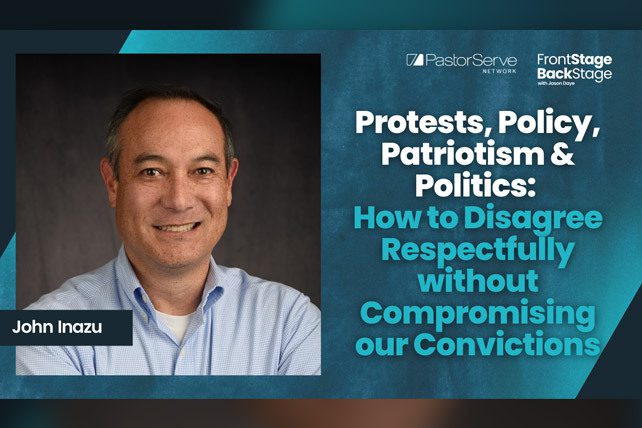
 Legislation, policy, patriotism, and religious freedom. There are so many differing views on so many challenging issues. As pastors and ministry leaders, how can we disagree respectfully without compromising our convictions? In this week’s conversation on FrontStage BackStage, host Jason Daye is joined by John Inazu. John is a distinguished Professor of Law and Religion at Washington University. He is a constitutional scholar, legal expert, former litigator, and devoted Christ-follower. John has written for a number of media outlets, and his most recent book is titled, “Learning To Disagree.” Together, John and Jason discuss important considerations for engaging respectfully with those who hold differing views on issues and beliefs. John also shares some powerful insights about how our allegiance to Jesus impacts and influences our lives and ministries.
Legislation, policy, patriotism, and religious freedom. There are so many differing views on so many challenging issues. As pastors and ministry leaders, how can we disagree respectfully without compromising our convictions? In this week’s conversation on FrontStage BackStage, host Jason Daye is joined by John Inazu. John is a distinguished Professor of Law and Religion at Washington University. He is a constitutional scholar, legal expert, former litigator, and devoted Christ-follower. John has written for a number of media outlets, and his most recent book is titled, “Learning To Disagree.” Together, John and Jason discuss important considerations for engaging respectfully with those who hold differing views on issues and beliefs. John also shares some powerful insights about how our allegiance to Jesus impacts and influences our lives and ministries.